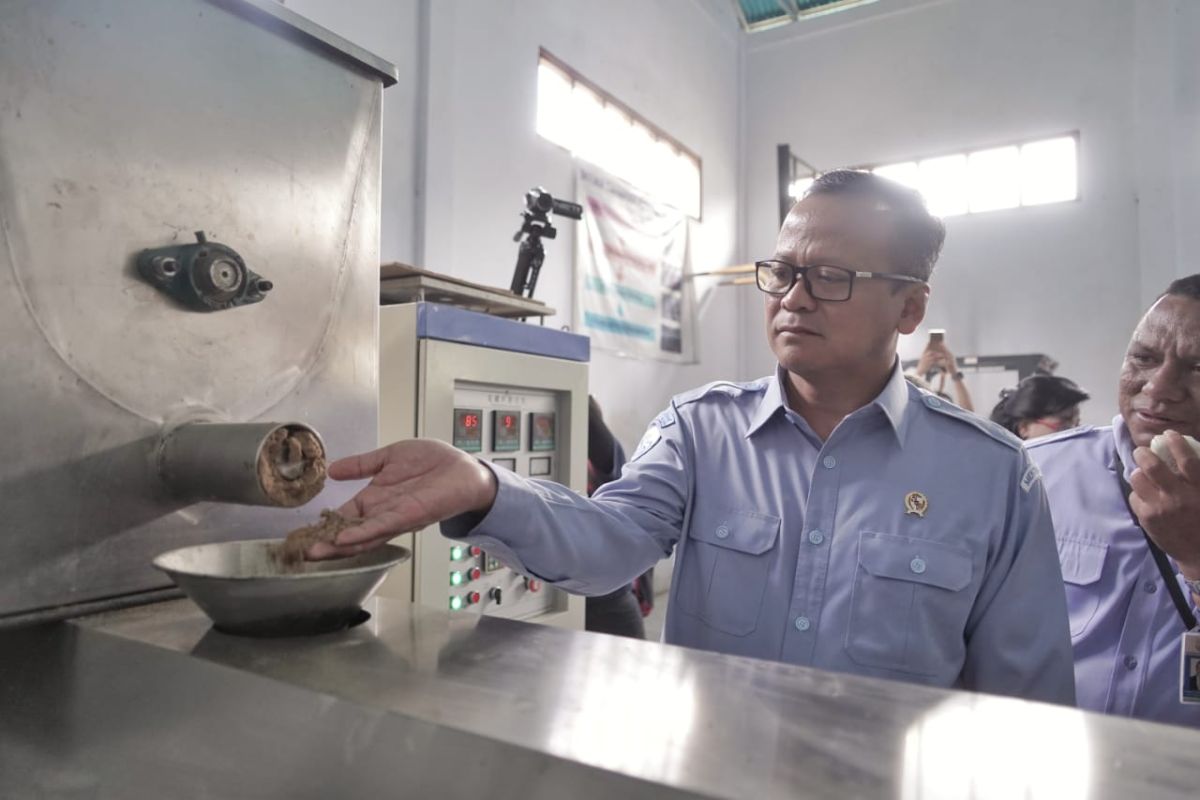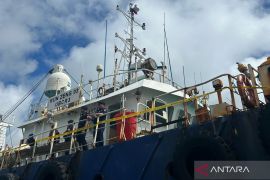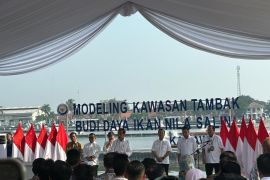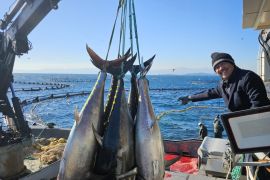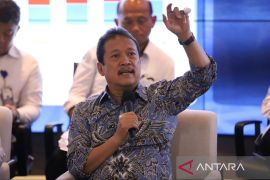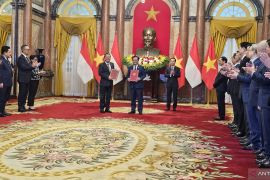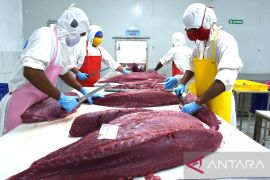The technology can increase stocking densities by up to seven times compared to conventional systemsJakarta (ANTARA) - The Ministry of Maritime Affairs and Fisheries has used the recirculation aquaculture system (RAS) technology to develop the national fish seed industry. "The technology can increase stocking densities by up to seven times compared to conventional systems," Minister of Maritime Affairs and Fisheries Edhy Prabowo said in a statement received in Jakarta Wednesday.
In addition, this technology is also able to cut the maintenance period, increase the passing rate of life, and the level of uniformity of size, the minister noted.
"With its various advantages, RAS can be a solution to overcome the problem of fish seed needs throughout Indonesia," he said.
The Minister of Maritime Affairs and Fisheries is aware that the current price of seeds is still quite high in some areas.
The cause is the condition of the region, the distance of delivery and the availability that has not been evenly distributed.
"This condition can be overcome by increasing the use of RAS technology throughout Indonesia, especially in aquaculture production centers. If this can be realized, in the future, I hope the seeds will be given free of charge to people who want to carry out cultivation activities," the minister added.
With more seed production and more people getting educated, more fish can be produced, according to Prabowo.
RAS technology can increase stocking densities by 28 to 30 birds per liter.
The system also cuts seed maintenance time to a relatively shorter period of 30 days which can reach a size of 2 to 4 cm with a passing rate of life reaching 95 percent and a uniformity of size of up to 90 percent.
Production productivity with RAS technology can increase up to 140 times compared to conventional methods.
RAS technology is the right technology in increasing fish hatchery productivity by decreasing water and land use, in addition to creating businesses with a minimal negative impact on ecology, Director General of Aquaculture at the Ministry of Maritime Affairs and Fisheries Slamet Soebjakto stated.
Another advantage of RAS compared to conventional systems is that it is safer from the pollution that occurs outside the aquatic environment so that sanitation and hygiene are environmentally friendly, he said.
Besides, easy maintenance, better water quality stability and more efficient use of water will make this intensive fish hatchery technology a new excellent in aquaculture, especially fish hatchers.
"With the flexibility of RAS technology that can be applied to various types of commodities. The Ministry of Maritime Affairs and Fisheries is ready to multiply this technology throughout Indonesia," Slamet stated.
Related news: Dependency on big corporations detrimental to aquaculture development
Related news: Indonesia urges Japan to expedite realizing aquaculture coop in Natuna
Related news: Indonesian, Norwegian firms ink cooperation agreement on fish farming
Translator: M Razi, Azis Kurmala
Editor: Yuni Arisandy Sinaga
Copyright © ANTARA 2020
